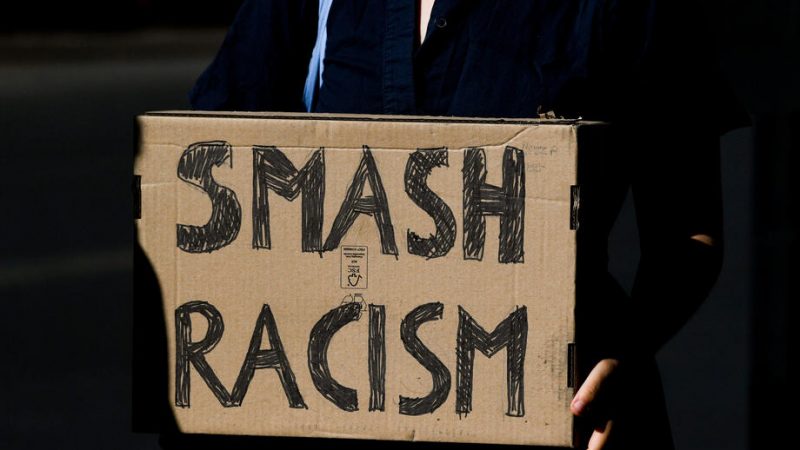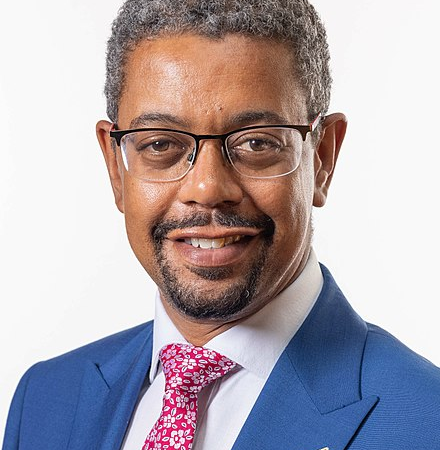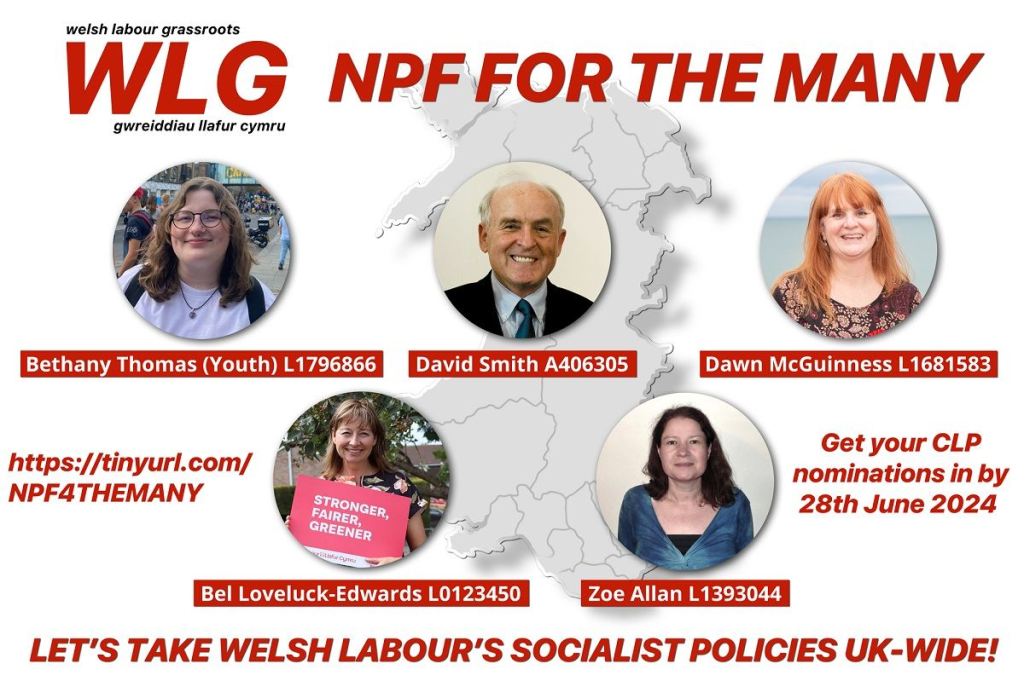Left Foot Forward
Opinion
We cannot gamble with people’s lives on waiting for a more progressive government in Westminster – for our action plan to have teeth, we must set out the steps for taking the power to enact it

The steps outside the Senedd (Welsh Parliament) are impressive. Wider than the building, and crafted from slate extracted from our land, they’re intended to draw the public up and into the heart of our glass clad, refreshingly open, national democracy.
With the roof reaching far over the steps, and our often inclement weather, they make the perfect place for a protest!
And that’s where I found myself last Sunday about to address the Stand Up To Racism rally.
As I stood there in front of a lively crowd, my mind was on three things.
Firstly, in that building behind me, the Senedd was on the brink of electing its first black First Minister – a first for Wales, and a first for any European nation.
My second thought was the contrast to the parliament at the other end of the M4, where we’d just witnessed the deplorable treatment of Diane Abbott MP: starting with the racist comments made by a Tory donor, whose words I don’t want to echo here, and then witnessing her being stood over by the Speaker for trying to speak on a discussion about racism and, well, Diane Abbott.
Thirdly, I was acutely aware of the role of politicians in demonstrating responsibility for such globally important topics as racism, for calling it out and stopping the hate.
What we’ve seen all too often in these polarised times, is an ‘othering’ which is at the heart of prejudice, and which is being driven and manipulated by right wing politicians and media to create division and embolden prejudice.
We’ve made some steps in the right direction in the Senedd. My party, Plaid Cymru, is proud to have worked with Labour Welsh Government via our Co-operation Agreement, on the Anti-Racist Wales Action Plan – a plan to address and eradicate racism in Wales. This plan shows so clearly our shared values of fairness, tolerance and justice, of protecting and bestowing rights, not taking them away, and our shared determination to call out bigotry, hatred, inequality and discrimination in all corners of our nation.
However, what’s also clear is that we must see action and change, and not just warm words.
We must go further and campaign for a Wales which has the powers it needs to create true equality for all, forged from a shared history, to meet the challenges which disproportionately affect some of our citizens compared to others.
Shared History
There are aspects to celebrate in that shared history, such as the translations of the slave narratives of John Marrant, Moses Roper and Josiah Henson into Welsh in the nineteenth century, which fired the radical abolitionist zeal of the Welsh; and the connections with Paul Robeson, who argued that he witnessed the unity of working people of all races in Wales.
There is also, of course, the history of racism: the 1919 riots that devastated Cardiff; the popularity of blackface minstrelsy in Welsh carnivals and on British TV, long after those racist practices had ceased in the US.
And more recently, the wrongful imprisonment of John Actie, Ronnie Actie, Stephen Miller, Tony Paris and Yusef Abdullahi after being falsely accused of murdering 20-year-old Lynette White in Cardiff in 1988. The life sentence given to three of these men – ‘The Cardiff 3’ – is often described as one of the biggest miscarriages of justice in UK legal history, and following which the then chief constable of South Wales police admitted “the disadvantage experienced through the criminal justice system by black communities is real and present.”
Whilst we must recognise and celebrate the contribution of all our citizens to our communities and nation, we must also ensure we appreciate and disrupt the barriers which can hamper all our citizens from playing a full part in our nation’s life.
As the Iraqi-born, Cardiff-based artist, Rabab Ghazoul, has said, Wales as internal colony and contributor to colonialism has “the capacity for both radical empathy and radical responsibility.”
That responsibility is one we must demonstrate as politicians, and it was this thought that was clearest in my mind as I addressed the crowd.
I told them that an action plan is a great start, but if we are serious about human rights, about fairness, about anti-racism here in Wales, then we need the power to implement that plan, and we can’t achieve that change with one hand tied behind our back.
Devolved powers
In Scotland, policing and the criminal justice system has been devolved to the Scottish Government. In Wales, the power still lies in Westminster.
This means that Wales is currently without the power to properly tackle the racist hate crimes which are increasing and which make up the vast majority of hate crime in Wales. It means we are without the power to address the fact that in Wales, black people represent 3.1% of the prison population, despite comprising only 0.9% of the general population; that those from a mixed or Asian ethnicity background are also over-represented and that the average custodial sentence length, between 2010 and 2022, was 8.5 months longer for black defendants than for those from a white ethnic group.
On the wider question of justice, Plaid Cymru believes that the only sustainable way of creating an inclusive and safe criminal justice system for our communities that works for Wales is by creating a system here in Wales, as has been done in Scotland.
We cannot gamble with people’s lives on waiting for a more progressive government in Westminster – for our action plan to have teeth, we must set out the steps for taking the power to enact it.
International stage
I am also clear we must raise our voice as a nation on the international stage.
The silence from too many politicians over the atrocities being committed against the Palestinian people is shameful.
As I stood on those Senedd steps, I reminded them that it was a Plaid Cymru motion calling for a ceasefire in Gaza that was passed by the Senedd in November of last year.
And the crowd had already demonstrated their awareness that politicians from Labour and Tory had voted against this motion. A member of the Labour Welsh Government had spoken before me, and the crowd called him out – and the rest of the government – for abstaining on this motion.
There are some that said our motion was meaningless. After all, responsibility for international policy – like policing and the criminal justice system – lies with Westminster. But as we have done with other conflicts, notably the invasion of Ukraine, we can signal our public condemnation and do what we can to give hope to others. Because, among the dead are relatives and friends of my constituents. People known to us, who we must remember, whose stories we must keep, with whom we share a history.
The citizens of Wales are looking to their politicians to take a stand and call for peace in Gaza, as they did for Ukraine.
Governments picking and choosing which aggressors to call out with moral outrage and concern for populations, and which they remain silent on, is racist.
The crowd in front of me agreed.
We stand together and we must stand with all – against all forms of racism, and in these terrible times, against Islamophobia and against Antisemitism. We must not let anyone divide us in that.

Sioned Williams MS is Member of Senedd for South Wales West, and she is Plaid Cymru’s spokesperson on Social Justice, Social Services and Equalities.
Controversy and challenges for Wales’ new First Minister
By Maggie Simpson

Vaughan Gething MS was confirmed as Wales’ new First Minister last week. He is the first black man to hold this position and indeed is the first black leader of a national government in Europe.
Vaughan succeeds Mark Drakeford after a close fought election for Welsh Labour leader which he secured against Jeremy Miles MS by 51.7% to 48.3% of the vote.
Welsh Labour Grassroots sent a series of policy questions to the two candidates at the start of the election. But responses from the candidates were such that WLG was unable to recommend support for either candidate.
There was a major issue during the election campaign of a £200,000 donation to the Vaughan Gething campaign from a businessman whose company has twice been convicted of environmental offences. This is a significant sum of money for a campaign when in the last such election the successful candidate used just £25,000. There are already calls for the money to be repaid and for guidelines on election expenditure to be looked at.
Mark Drakeford’s government was of the centre-left. Among its achievements are Senedd reform in partnership with Plaid Cymru and the Independent Commission on the Constitutional future of Wales whose final report was delivered in January.
There are no academy schools or foundation hospitals in Wales but free bus passes for the over 60s, free prescriptions and universal free school meals in primary schools. A Social Partnership Council with trade unions and business has been established and there has been progress on work across all the equality strands.
Nonetheless, there are major budgetary challenges, difficulty of public service delivery through austerity and tackling the climate emergency. The introduction of 20mph zones in residential areas has provoked widespread discontent. Moreover, the Welsh government failed to support an immediate ceasefire in Gaza despite a Senedd vote for it and the Covid Inquiry in Wales has revealed that 68% of those who died in Wales were disabled people, an even higher ratio than the 59% of those deaths in the UK as a whole.
Vaughan Gething will face significant challenges as First Minister. As a supporter of both Tony Blair and Keir Starmer, his government will undoubtedly differ from that of Mark Drakeford. Welsh Labour Grassroots issued a policy document during the leadership campaign outlining key socialist policies that it will continue to campaign for. Readers can see it here.
‘Clear red water’ was the term coined to describe the policy differences between Welsh Labour and the Blair governments. Clear red water between Wales and Westminster will need to be maintained as necessary, if poverty, inequality and wellbeing in Wales are to be addressed in the coming years.

Candidates supported by Welsh Labour Grassroots for the Wales National Policy Forum seats
Maggie Simpson is a member of Welsh Labour Grassroots steering committee and the executive committee of the Campaign for Labour Party Democracy.
No comments:
Post a Comment